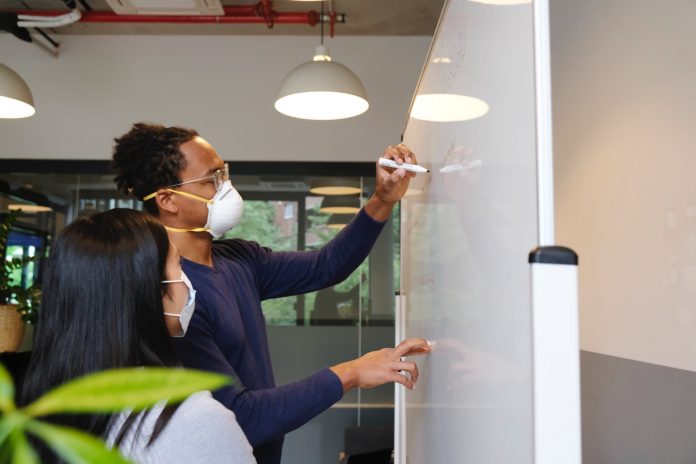It might seem illogical or inappropriate to start a business during a financial or social crisis. But surprisingly, difficult situations actually inspire a lot of business creativity. There are several examples of vastly successful companies, such as CNN, General Motors and Uber, that launched and grew during severe financial recessions.
Even now, with the COVID-19 pandemic in full swing, new start-ups are still popping up. Experts call it necessity entrepreneurship — when aspiring entrepreneurs turn to self-employment following lay-offs or loss of income. It makes sense that more people try to launch new ventures when jobs are scarce, mostly because they have plenty of free time on their hands to develop business concepts.
However, the current pandemic is particularly picky about which ventures work and those that don’t. The global coronavirus control measures such as social distancing, travel bans and lockdowns indeed narrow down the options for potentially lucrative business ideas.
In addition to learning the right business skills, you should also be able to distinguish feasible business plans from ill-fated ones. If you are feeling motivated to start a new business during the current pandemic, here are five commerce sectors you should avoid altogether.
1. Accommodations and food services
The hospitality and food industries are among the worst-hit business sectors by the pandemic. In fact, a majority of small and medium-sized food vendors, hotels, bars and restaurants have shut down entirely due to unfavorable regulations or lack of a sustainable business environment.
In some Australian states, restaurants, cafes and food courts can only offer delivery and takeaway services. Even in states where the restrictions are more lenient, these establishments are still struggling to stay afloat.
2. Transportation
With only a few people commuting to work daily and no students attending school, a public transport business model will definitely not work in the current pandemic. In many countries, public transport and mass mobility are completely banned. For the most part, only essential travel, such as for food, industrial, and medical supplies and emergency services, is allowed.
Different territories in Australia have varying travel limitations and regulations. Some states, such as New South Wales, have already started easing their restrictions. But the improved situation still cannot support a thriving transport industry. Starting a public fleet service such as taxi, car hire, shipment, or tours in this climate would be a bad idea. In fact, major players in the industry, including airlines and car manufacturers, are also feeling the heat.
3. Recreation and entertainment
Most countries are yet to reopen their borders and lift severe restrictions on overseas flights and cruises. Some nations are a bit more relaxed than others when it comes to international travel. For instance, some European countries, such as the UK, have started welcoming foreigners (at least those that meet certain criteria).
The Australian Prime Minister recently announced that the country would keep its borders closed indefinitely. This is more bad news for the recreation and entertainment sectors that largely rely on foreign tourists. Resorts, beaches, theaters, clubs and sports arenas that would otherwise be swarming with thrill-seekers and vacationers are now deserted. Sadly, these might very well be the last businesses to reopen as the country battles the deadly virus.
For those reasons, now would be the worst time to venture into the recreational and entertainment industries.
4. Retail store
The last couple of months have been an exceptionally awful period for retailers across the globe. Most governments never explicitly ordered a complete shutdown of malls, shopping centers, stores or vending stops. But the situation has nevertheless forced thousands of retail outlets to close.
Due to lockdown restrictions, distancing rules, and general public anxiety, most shoppers opt to shop online and seem to prioritize only essential purchases. Stores that could not adjust quickly to the pandemic and the abrupt change in consumer behavior have had no choice but to close up shop.
Some retail stores are still open in various places, but it is far from business as usual. Although you could set up a profitable online store amid the pandemic, the chance of success is slim and not worth the risk.
5. Personal services
Another area to avoid is the personal services industry. Businesses involved in grooming, beauty, and non-essential personal therapies—such as barbershops, hair salons, and spas—are not really financially attractive at the moment.
In Australia, the laws regulating the operations of personal services depend on the territory in question. For instance, in the Northern Territory, personal services businesses were only recently allowed to reopen, provided that the operators meet high standards of hygiene and submit a COVID-19 safety plan to the Chief Health Officer. Even after fulfilling all the requirements, these facilities have low foot traffic.
Bottom line
Venturing into any of these five industries is a huge gamble. The best bet is to wait out the pandemic until the right moment presents itself. This is unfortunate if you had your heart set on these particular areas. But instead of getting frustrated over missed opportunities, use that energy to come up with a business model that can flourish under the harsh environment. There is no shortage of business ideas; you just have to look at adversities from different perspectives to find lucrative opportunities. Additionally, working from home tips can help you stay focused and productive as you work on building a business that adapts to these challenging times.
Find a Home-Based Business to Start-Up >>> Hundreds of Business Listings.

















































